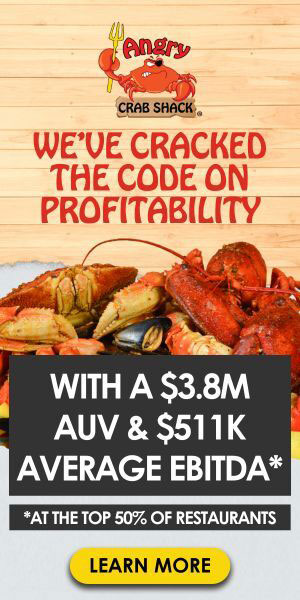How the Chunara Group Uses Real Estate-and Partners-To Grow

The Chunara Group of Companies started in the mid-1980s with one restaurant. Now, there are more than 160. Most are restaurants, including Dunkin’, Rally’s, Kale Me Crazy, and BurgerFi. The company also owns Take 5 Oil Change locations.
Over the years, the Chunara Group developed its own pathway for growth. Shehzaan Chunara, vice president, says the company works with operating partners who manage the units.
“Anytime we have new partners that come in with us,” he says, “they are coached and guided by our existing partners who have all the experience and have been with us for years and years. Whether it’s the paperwork or the operations, we’ll find a partner that’s within that brand and try to pair them up, so they can learn directly from them.”
As a company, the Chunara Group doesn’t necessarily have a set plan of units to build or buy each year. It grows organically as partners present new deals. “We had significant growth the past two years,” he says. “This year, we slowed down a little bit just because of the environment we’re in. We’ll see where the next year takes us.”
The approach has been refined over the years. All deals go through the partnering process, and the Chunara Group retains a 51% interest in each unit added. The company looks for brands that have relatively small and easy-to-operate footprints. “Nowadays, we don’t like to be with brands that have big buildings that are 3,000 to 3,500 square feet,” says Chunara. “We like a limited scope, especially where employees are cross-trained. The same person taking your payment can make the food, or provide the service if it’s an oil change.”
The company also shies away from expensive buildout costs and mandatory remodeling plans. “To build a Dunkin’ is very expensive because you’ve got to remodel it every 10 years,” says Chunara. “It’s very expensive. The same with a Popeyes.” On the other hand, a Take 5 Oil Change requires 1,500 square feet.
However, joining a new brand is about more than footprints and logistics. Chunara and his father meet face-to-face with the executive team of each company to get a feel for the brand’s direction and leadership team. Chunara says it’s understood that executives can move around. “But, generally speaking, as long as we feel good about the culture and direction of the brand, that would be another step toward pushing us to get into a new brand.”
The Chunara Group doesn’t get involved at the store level, so individual partners are responsible for training and leading their employees. “The way we build a culture for our partners is by ensuring they have no ceiling for growth,” he says.
“If they want to grow more stores, I show them that there is literally no stopping with us. You can do as much as you can possibly ask for. You can grow as many units as you want. You can sell them when you want. You can leverage them using the bank if you want to go out and buy a piece of real estate, so the options are endless for our partners to grow with us.”
Share this Feature
Recommended Reading:
| ADVERTISE | SPONSORED CONTENT |
FRANCHISE TOPICS
- Multi-Unit Franchising
- Get Started in Franchising
- Franchise Growth
- Franchise Operations
- Open New Units
- Franchise Leadership
- Franchise Marketing
- Technology
- Franchise Law
- Franchise Awards
- Franchise Rankings
- Franchise Trends
- Franchise Development
- Featured Franchise Stories
| ADVERTISE | SPONSORED CONTENT |

$225,000
$75,000





 The multi-unit franchise opportunities listed above are not related to or endorsed by Multi-Unit Franchisee or Franchise Update Media Group. We are not engaged in, supporting, or endorsing any specific franchise, business opportunity, company or individual. No statement in this site is to be construed as a recommendation. We encourage prospective franchise buyers to perform extensive due diligence when considering a franchise opportunity.
The multi-unit franchise opportunities listed above are not related to or endorsed by Multi-Unit Franchisee or Franchise Update Media Group. We are not engaged in, supporting, or endorsing any specific franchise, business opportunity, company or individual. No statement in this site is to be construed as a recommendation. We encourage prospective franchise buyers to perform extensive due diligence when considering a franchise opportunity.